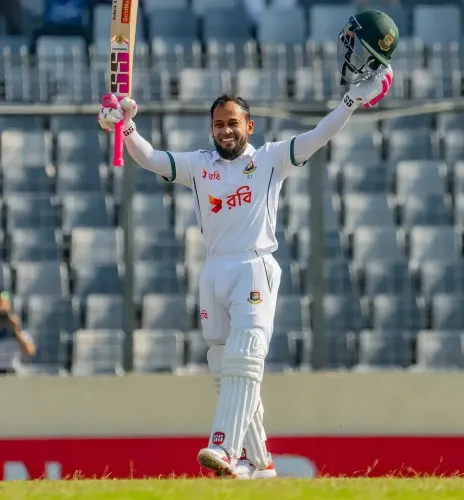Did Joe Root Honor Graham Thorpe After His 39th Century?

Synopsis
Key Takeaways
- Joe Root scored his 39th Test century.
- He paid tribute to Graham Thorpe, raising awareness for mental health.
- Root wore a bandana and honored Thorpe's legacy during the match.
- Thorpe was a key figure in England cricket from the mid-90s to 2005.
- Mental health is a growing concern in professional sports.
London, Aug 3 (NationPress) Veteran England batsman Joe Root on Sunday achieved his 39th Test century, dedicating this milestone to former England player Graham Thorpe, who tragically passed away by suicide on August 4, 2024. Root honored Thorpe, whose birthday was celebrated just two days earlier, by wearing a bandana reminiscent of Thorpe's signature style during the fourth day of the fifth Test for the Anderson-Tendulkar Trophy at The Oval.
In a pivotal moment, Root steadied the England second innings and formed a significant partnership with Harry Brook (who made 111), as they combined for a remarkable 195-run partnership for the fourth wicket. Root reached his century with a double in the 60th over, delivered by Akash Deep, completing the feat in just 137 balls and striking 12 fours.
What truly resonated with England supporters was Root's heartfelt tribute post-century, which was dedicated to his former teammate and coach.
Root kissed the emblem on his helmet and raised his bat in response to the crowd's applause, then picked up the 'Graham Thorpe headband', donned it, and pointed skyward.
Thorpe was a key figure in England's batting lineup, excelling in both red-ball and white-ball formats from the mid-90s until his retirement in 2005. Post-retirement, he served as the batting coach for the England Test team until he and other support staff were let go following England's 0-4 loss in the Ashes series of 2021-22.
At 55, Thorpe's death by stepping in front of a train was publicly attributed to mental health challenges by his family, aiming to raise awareness on this critical issue.
Root's tribute following his century emphasizes the growing importance of addressing mental health concerns in cricket, particularly given the demanding lifestyle modern players face across various formats of the game.








